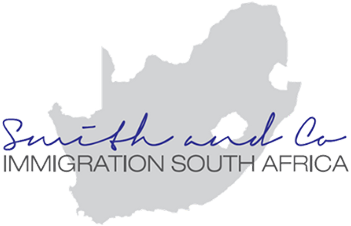The Department of Home Affairs announced and gazetted the pilot programme of the Trusted Employer Scheme (TES), which was initially introduced during the President’s SONA speech earlier in February. The objective of the programme is to create a smoother pathway for South African corporates seeking to employ skilled foreign nationals and such corporates will be measured and assessed against the established criteria to determine the company’s eligibility to become a TES member. The aim is for TES member companies and their expatriates to have reduced requirements and quicker visa processing time. This scheme is planned to ‘re-package’ the Corporate Accounts Services where corporate companies have been able to submit their expatriates’ visa applications through VFS GGDA or OSS offices that are currently providing a premium and streamlined experience. DHA further held a webinar on 13 October 2023 explaining the TES program, process, and criteria.
What are the prescribed criteria to qualify as a TES member?
The selected criteria are spread over 5 sections whereby there will be a pre-determined point-based system and a company must score 80 points or higher to be considered as a TES member. The criteria include:
1. Pledges/Proven Investment:
- Companies must demonstrate proof of pledges to SAIC or proven investments since 2018 within the Republic’s boundaries. Investments made prior to 2018 won’t be considered.
- Fixed Capital Investment above R100 million, operational expenditure will not be considered.
- 20 points will be awarded for evidence of historical investments or SAIC pledges between R100 million and R200 million.
- 30 points will be awarded for evidence of historical investments or SAIC pledges exceeding R200 million.
2. Employment:
- A minimum of 60% of the staff must be South African citizens or Permanent Residents, and the Department has reduced the number of required employees.
- Employees cannot be outsourced or contracted through a Labour Broker.
- 20 points are awarded for evidence of a minimum of 100 employees.
- 25 points are awarded for evidence of more than 150 employees.
3. Sector:
- Companies operating/investing in sectors as identified by DTIC:
- Sector 1: Manufacturing
- Sector 2: Advanced manufacturing
- Sector 3: Services
- Sector 4: Resourced based Industries
- Sector 5: Energy (Power Generation and Renewable Energy)
- Sector 6: Infrastructure
- 10 points are awarded to companies that fall within sectors 1 – 4.
- 10 points are awarded to companies that fall within sectors 1 – 4.
- 15 points are awarded to companies that fall within sectors 5 & 6.
4. Skills Transfer:
- The company is to show proof of a Skills Transfer Programme, Bursary Scheme or Graduate Development Programme for South African Citizens or Permanent Residents.
- 20 points are awarded for evidence of an active Skills Transfer Program, Bursary Scheme, or Graduate Development Program.
5. Equity Equivalents:
- 5 points will be awarded for B-BBEE Levels 5 – 8.
- 10 points will be awarded for B-BBEE Levels 1- 4.
- 10 points will be awarded for the Equity Equivalence agreement with the DTIC.
During the webinar, DHA advised that corporations with subsidiaries or affiliated companies will be assessed as the brand rather than individual subsidiaries.
These applications will be evaluated by a selected Inter-Departmental Committee, including officials from various Departments, for recommendation, the final decision ultimately rests with the Department of Home Affairs.
There is a limited window for application to be made to DHA and the deadline is set for 20 November 2023.
Contact us if you require further information or assistance with a TES application for your company.



